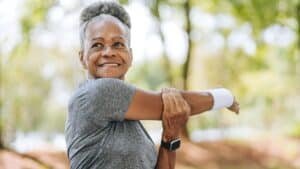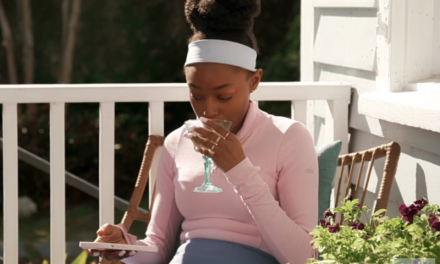
I have never been an up-to-the-minute sort of person. It takes time for the latest thing to filter itself down to my consciousness. Even the not-so-latest thing.
So, forgive me if I admit that I never really knew much about life coaches at all – much less about those coaches who advise women in their mid-to-late 50s about how to approach their later years.
And yet I have met quite a few of the latter recently, at least online.
This is because they find out about me and want to interview me, as an active 82-year-old woman, who calls herself ‘the granny who stands on her head’. This is the title of both my most recent book about why I like being old and, more recently, my Substack newsletter which goes out fortnightly.
Planning for the Future
As I was planting out some early flowers in my garden this morning, I was thinking about what I would advise if I were a life coach. Or advising my daughter if she were approaching retirement age.
First thought – yikes, she is! She is already 55 and her son is off to university this autumn. She is successful in her work and not about to retire. And not yet worrying very heavily about this stage in life.
Second thought, OK, how would I advise anyone else? Here I am, well past retirement – indeed, 20 years beyond my early 60s, never mind my 50s.
Surely, I should have something to say.
I imagine life coaches work carefully with each individual to bring out what they would most enjoy doing in the last part of their life. What did they always want to do but never had the time for? What talents would they like to develop? What places do they want to see? And perhaps much else.
My thoughts were that yes, all that is good, but they should first take a step backward (perhaps they do, I don’t know). Before you can plan for an active future, you need to do what you can to assure you will have an active future.
Fitness and Health
And when I thought about it, the thing that has most affected my ability to enjoy my life nowadays is real fitness and good health. I am strong, I am flexible – and, surprising as that may sound, I wasn’t in as good condition when I was younger.
I put a lot of this down to yoga, which I have been practising for 30 years. Back then, I chose to do Iyengar Yoga, considered one of the hardest forms of yoga. I did so not because I looked into it in any great detail – but simply on the advice of a friend.
It is hard work, it is not always fun to do at the time, but my goodness, it has really made me able to cope with things now. You can see a video of me standing on my head a year or so ago here.
I am not claiming perspicacity. I did not know when I started that this would be the happy outcome. It just seemed a good idea to get a bit more fit, a lot of people had recommended it, and I thought why not ‘give it a go’?
I don’t urge everyone to do yoga. There are plenty of other activities that would keep you fit and healthy. You can swim (I also do that), run (no), play tennis (no), dance (sadly, no) – no end of possibilities. Even ‘chair yoga’ which keeps being advertised on Facebook.
But I do urge all middle-aged and older people to do something – and to keep to it through thick and thin. My daughter also does yoga (a different variant) and bought a treadmill during lockdown, which she uses regularly.
(Of course, it is also important to eat healthily, but there is so much nutritional advice here and everywhere that I see no reason to discuss any of it here.)
Getting Down to It
The real issue is actually getting down to exercise and building it into your day.
Yes, I know you have heard this all before. You have heard it until you want to scream. Moreover, you have been hearing it all your life! Why make a special fuss at exactly that time when feel you should be able to relax a bit?
The answer lies in the fact that this is exactly the time when fitness and health, left to their own devices, are likely to decline. You want to do everything you can to fight that natural tendency. It will make such a difference to your life – the ability to move and walk freely is needed for almost any activity you might want to take up in your later years.
And being strong means you are less likely to fall – and therefore compound the general difficulties of old age. And if you fall, you are less likely to do any serious damage.
Health is not wholly under your control. I am no expert, but I am sure that genes have a lot to do with it. Not to mention all sorts of accidents that might have happened along the way.
But put simply, without being fit, you won’t have much choice in what to do in retirement. You won’t be expanding your talents in new ways. You won’t be addressing your bucket list.
So, from looking back from age 82, I would start with that.
Good luck.
Let’s Have a Conversation:
What kinds of exercise do you do? What got you started? Has it changed your life for the better?





